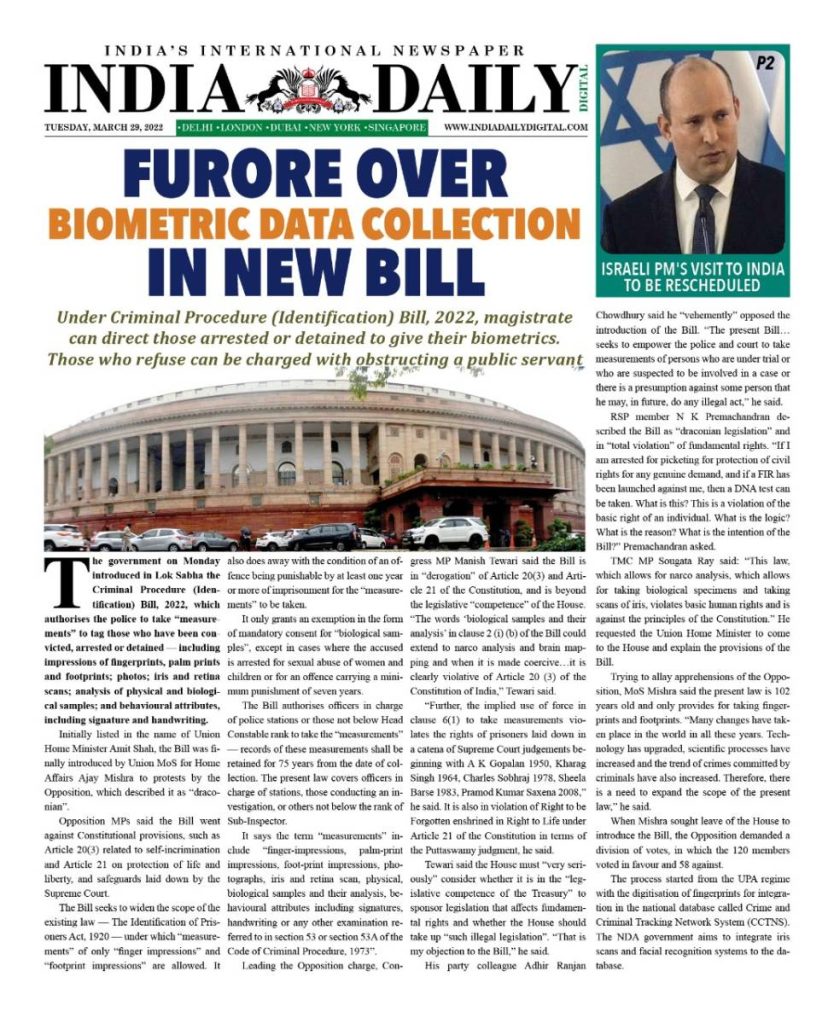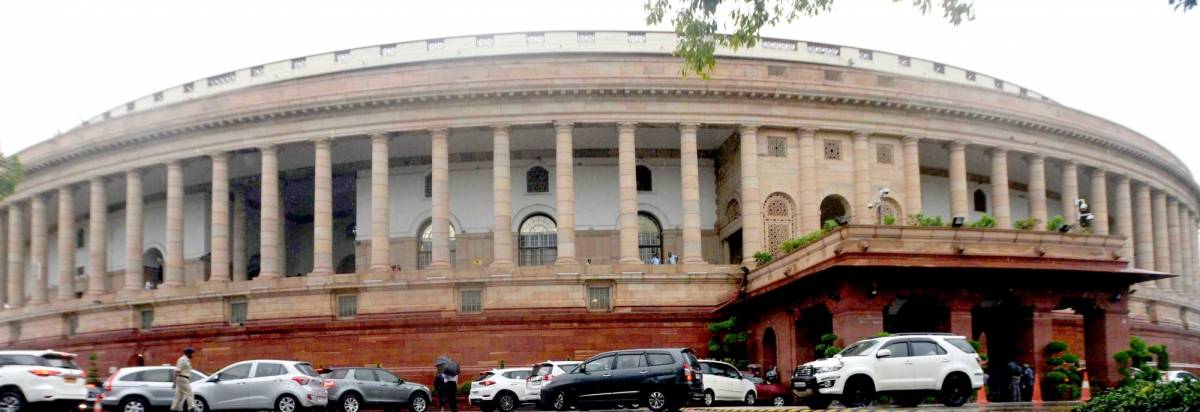Under Criminal Procedure (Identification) Bill, 2022, magistrate can direct those arrested or detained to give their biometrics. Those who refuse can be charged with obstructing a public servant.
The government on Monday introduced in Lok Sabha the Criminal Procedure (Identification) Bill, 2022, which authorises the police to take “measurements” to tag those who have been convicted, arrested or detained — including impressions of fingerprints, palm prints and footprints; photos; iris and retina scans; analysis of physical and biological samples; and behavioural attributes, including signature and handwriting.
Initially listed in the name of Union Home Minister Amit Shah, the Bill was finally introduced by Union MoS for Home Affairs Ajay Mishra to protests by the Opposition, which described it as “draconian”.
Opposition MPs said the Bill went against Constitutional provisions, such as Article 20(3) related to self-incrimination and Article 21 on protection of life and liberty, and safeguards laid down by the Supreme Court.
The Bill seeks to widen the scope of the existing law — The Identification of Prisoners Act, 1920 — under which “measurements” of only “finger impressions” and “footprint impressions” are allowed. It also does away with the condition of an offence being punishable by at least one year or more of imprisonment for the “measurements” to be taken.
It only grants an exemption in the form of mandatory consent for “biological samples”, except in cases where the accused is arrested for sexual abuse of women and children or for an offence carrying a minimum punishment of seven years.
The Bill authorises officers in charge of police stations or those not below Head Constable rank to take the “measurements” — records of these measurements shall be retained for 75 years from the date of collection. The present law covers officers in charge of stations, those conducting an investigation, or others not below the rank of Sub-Inspector.
It says the term “measurements” include “finger-impressions, palm-print impressions, foot-print impressions, photographs, iris and retina scan, physical, biological samples and their analysis, behavioural attributes including signatures, handwriting or any other examination referred to in section 53 or section 53A of the Code of Criminal Procedure, 1973”.
Leading the Opposition charge, Congress MP Manish Tewari said the Bill is in “derogation” of Article 20(3) and Article 21 of the Constitution, and is beyond the legislative “competence” of the House. “The words ‘biological samples and their analysis’ in clause 2 (i) (b) of the Bill could extend to narco analysis and brain mapping and when it is made coercive…it is clearly violative of Article 20 (3) of the Constitution of India,” Tewari said.
“Further, the implied use of force in clause 6(1) to take measurements violates the rights of prisoners laid down in a catena of Supreme Court judgements beginning with A K Gopalan 1950, Kharag Singh 1964, Charles Sobhraj 1978, Sheela Barse 1983, Pramod Kumar Saxena 2008,” he said. It is also in violation of Right to be Forgotten enshrined in Right to Life under Article 21 of the Constitution in terms of the Puttaswamy judgment, he said.
Tewari said the House must “very seriously” consider whether it is in the “legislative competence of the Treasury” to sponsor legislation that affects fundamental rights and whether the House should take up “such illegal legislation”. “That is my objection to the Bill,” he said.
His party colleague Adhir Ranjan Chowdhury said he “vehemently” opposed the introduction of the Bill. “The present Bill…seeks to empower the police and court to take measurements of persons who are under trial or who are suspected to be involved in a case or there is a presumption against some person that he may, in future, do any illegal act,” he said.
RSP member N K Premachandran described the Bill as “draconian legislation” and in “total violation” of fundamental rights. “If I am arrested for picketing for protection of civil rights for any genuine demand, and if a FIR has been launched against me, then a DNA test can be taken. What is this? This is a violation of the basic right of an individual. What is the logic? What is the reason? What is the intention of the Bill?” Premachandran asked.
TMC MP Sougata Ray said: “This law, which allows for narco analysis, which allows for taking biological specimens and taking scans of iris, violates basic human rights and is against the principles of the Constitution.” He requested the Union Home Minister to come to the House and explain the provisions of the Bill.

Trying to allay apprehensions of the Opposition, MoS Mishra said the present law is 102 years old and only provides for taking fingerprints and footprints. “Many changes have taken place in the world in all these years. Technology has upgraded, scientific processes have increased and the trend of crimes committed by criminals have also increased. Therefore, there is a need to expand the scope of the present law,” he said.
When Mishra sought leave of the House to introduce the Bill, the Opposition demanded a division of votes, in which the 120 members voted in favour and 58 against.
The process started from the UPA regime with the digitisation of fingerprints for integration in the national database called Crime and Criminal Tracking Network System (CCTNS). The NDA government aims to integrate iris scans and facial recognition systems to the database.
ALSO READ-Lok Sabha passes Demands for Grants and Appropriation Bill

